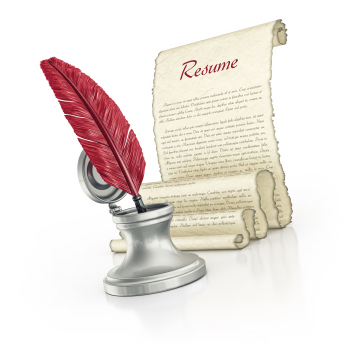
It’s a dog eat dog world out there when it comes to job hunting in today’s job market. There are way too many applicants and not enough jobs to go around. That makes the competition really tough. But, you could be hindering yourself by your attitude.
It is hard to keep morale up lately, but if you are the type of person who has resigned themselves to not getting a job because you keep getting the brush off, then you may be making it worse.
Even if you are not aware of it, low morale and negativity can be felt by others. So, if you have a feeling of resignation and just going through the emotions, the prospective employer may sense that you are really just not interested in the job and pass you over.
It’s better to give yourself a pep talk before any interview. Maybe get a friend to role play with you to see how you are coming across to others.
In addition, social networking is also a great confidence builder. Ask several of your Facebook friends to look at your resume to see where you could improve upon it. You may not can see any flaws but others can.
And, above all, go into any business with your resume in hand, dressed for success, shoulders squared, a big smile on your face and be confident. This very first impression will be the one to get your resume to the next level.
Tips for Putting Salary Requirements on your Cover Letter
Cover LettersJob SearchProfessional ResumesResume WritingResumes

• Look at the job title and description of qualifications/requirements. First, do you meet all of the requirements they are asking for? Even if you only have a portion of the qualifications listed in the job description, as long as you have the majority of them, you should still apply for the job.
• Research similar positions that are out there and see what salary ranges are being offered. There are hundreds of job sites (glassdoor.com is a good one) on the internet that post salary ranges for specific positions, and some will even show what those positions make in different geographic areas. If you are able to get compensation information, that would help you as well.
• What are you making at your current job? If you are making $55,000 per year now, it wouldn’t look good to demand $85,000 for the same type of position (unless the new position has more requirements and/or is a managerial role). Yes, you will want to up the ante from what you are making, but you still need to be realistic.
• If the salary range is not listed on the job posting, contact the employer and ask what the range is. If you have a lot of experience, put your salary requirements toward the top of the range. If you are basically new to the field or only have a few years of experience, go mid-range or a little lower. You can always move up the scale once you get your foot in the door and show them what you can do.
• Never list your salary requirements at the beginning of your cover letter! Draw them in with your qualifications and achievements, then end with your salary requirements.
• Once you have done all of your research and have established the salary requirements you’re going to ask for, list those requirements, as well as the compensation package in your current position toward the bottom of your cover letter. You can even let them know that you are willing to negotiate based on your qualifications, benefit structure, job responsibilities, and advancement opportunities.
If you do land an interview, revisit your facts and research and be prepared to discuss your salary requirements during the interview. While communicating your salary requirements may seem awkward at first, presenting your information in a professional manner based on facts and research will impress the employer and hopefully get you the job you are trying for.
5 Reasons Why You Should Have a Personal Brand
BlogCareer & WorkplaceInterviewingJob SearchNetworkingResume WritingSocial Marketing/Online Branding

Social Media has dramatically changed the job landscape. Today’s job seekers must remake themselves as a brand. Think of McDonald’s golden arches or Ford’s iconic script logo. People remember these brands because they set themselves apart from the rest. People don’t settle for any old hamburger when they know what they will get at McDonald’s. Brands build trust with people and that trust translates to increased business and a reliable customer base, which is exactly what you want your online brand to do for you.
Your personal brand builds trust in prospective employers and opens the doors for you to find new positions. Unfortunately, most people don’t think that they need a personal brand, and they are so wrong in assuming this.
Below are 5 reasons why you should establish a personal brand on your resume and online:
1. A personal brand differentiates yourself…
When an HR Manager scans the pile of resumes on their desk, they look for someone who stands out. But, they don’t just focus on the resume, they also look for your online presence because the internet contains much more information about you as a worker. Do you have an industry specific blog or website that you regularly update? Is your personal brand listed on your LinkedIn profile, along with your best career achievements? Listing a successful work history and any extracurricular activities that you’re involved in helps to build your online brand.
2. Make your name a well-known brand…
Who do you think HR Managers are going to go for? The new guy fresh out of college or the big name attached to great companies and amazing projects? Of course they are going to go with the big name. So to capitalize on your opportunities, you must make yourself into a brand name. Instead of seeing “John Smith – New Graduate”, they see “John Smith – Marketing Guru”.
3. Set you apart from your peers…
Your goal is to set yourself apart from your peers. You’re in direct competition for open positions. It’s just the way it is and having an online brand sets you apart from the rest of the pack. Start an industry blog, start a side business or develop a new marketing strategy that you can pitch to prospective employers. There are so many things you can do to highlight how you are a notch above your peers and get your brand out there.
4. Make you more attractive to employers…
Establishing your brand makes you more attractive to prospective employers because they know what they are getting. You’re not a faceless employee; you’re the one who wrote a new programming language, the one who developed supply chains that drastically reduced company overhead, etc. Match your brand to your achievements and employers will stand up and take note.
5. Open yourself up to new opportunities…
You want to find open positions and sometimes they may not be in your chosen profession. But, does that really matter? What if the perfect position is in another industry that you have minimal experience? Well, having an online brand opens the doors to those new arenas. HR Managers are looking for people with experience, and thankfully, your online brand is built around your experience. By viewing your online brand, HR Managers and potential employers can see what you offer the company. They are excited to find somebody with your expertise and skills, and you should be too. You have clout that you never knew you had and your personal brand should reflect the best you have to offer.
Making Sure You Have Strong Cover Letters and Email Messages
Cover LettersInterviewingJob SearchResume KeywordsResume Writing

You know how you always hear, “Typically, recruiters and HR managers look over a cover letter in less than a minute to determine if you’re a strong candidate?” Well, I’m here to tell you that it’s TRUE. Your cover letter must prove to readers that you are a viable choice for the position, and we can show you just how to do that.
Make sure to choose the right greeting in your follow up email or letter.
If you have the person’s name and gender, include this in your greeting. Make sure to use the proper Mr., Mrs., Dr. or title along with their last name. Do not use their first name unless you know the person. If you do not know the gender of the person, you can use an introduction such as “Dear Danny Smith”.
It’s important to have the HR manager’s name correct. If you have questions, then call and ask for the information through the company, or look them up on Facebook or LinkedIn.
Reference the position title, company name and where you learned of the position.
An example of this: “I recently heard of Telecomm International’s open Corporate Liaison Officer position on Monster.com.” This information shortens the time it takes for HR managers to sort through resumes and increases the chances that your resume will be chosen.
Explain why you are the best person for the job.
You don’t want to do a repeat of your resume, but you do want to state how your background, qualifications and abilities will help the company succeed.
Example: “As my resume states, I have the talent, versatility and experience that comes with 20 years in corporate marketing, branding and public relations with Large Multinational Corporations as well as Local Well-Known Businesses. I also have years of experience as a Digital Freelancer working with Company Wide Initiatives that will definitely benefit your company.”
Be sure to include keywords from the job description and make use of power words to elaborate on your capabilities. Reinforce your relevant experience working with the job’s specific duties as well as your knowledge about needed computer programs which were indicated in the job description.
Be Brief.
If you send your cover letter through the mail, make sure it’s one page. Email messages should be kept to around 3-5 small-ish paragraphs. Your paragraphs need to be brief as to not take up too much time.
Include contact information and the best time and way to speak with you.
List your cell phone, home phone and the email address you use the most and let HR managers know how to best contact you through your preferred method. If you are currently employed or in a situation where you cannot return calls, make sure to leave a call back number, or list some times where you are free to talk.
Proof read your cover letter and email message.
Do this over and over until you are sure that everything is in place and you have mentioned the position, company name and included any applicable contact information.
Following these tips will help you to create cover letters and emails that will stand out to HR Managers and recruiters looking for their next candidate.
Constructing a Resume That Sells You
BlogCareer & WorkplaceExecutive ResumesJob SearchProfessional ResumesResume KeywordsResume WritingResumesSuccess Strategies

Some people think that resumes are nothing more than a list of your accomplishments, the jobs you’ve had, and the number of places you’ve worked. But, it’s not that easy to construct a resume that markets you to your prospective employer. A resume should be designed to sell you and your potential to an employer. That means that you have to make decisions about how to present your traits.
A resume has to be like an advertisement, it needs to catch the reader’s eye and meet their particular needs. If you’re applying for an accounting job, then you wouldn’t need to showcase your creative writing talents on your resume. You would need to show that you have the skills required to perform the duties of the position at a high level. That doesn’t mean putting everything you’ve ever done on your resume, it just means you have to understand your market and how to reach them. Make sure you put your best foot forward.
Look over your work history and pick the selling points that best highlight your value. Depending on the position, you should highlight specific skills that you have. Deciding what makes the most unique selling points can be the hardest part of writing a resume. Here are five basic steps to help design a resume that markets your skills to employers:
1. Choose the most relevant information first. Focus on the skills and experience that are most important to the job you’re applying for. You may have a whole range of skills, but focus on the ones that are most important for your particular employer. Even if you’re qualified based on past experience, don’t put all of your eggs in one basket. Instead, make sure that you focus on the skills that are going to set you apart from other potential employees.
2. Showcase the cutting edge, without too much emphasis on the outdated. More experienced workers should focus heavily on this. Any professional should continue to update their resume with new talents and show that they can adapt to new challenges. You may know the beginnings of C+ language, but it will help if you know Flash or Linux.
3. Tangible examples are best. Be specific as possible and use tangible evidence of improvements if you can. Just saying that you have an excellent track record of improving sales doesn’t show much, you need to show actual figures.
4. Use multiple resumes to market yourself in a different manner. If you’re applying for several different types of positions or in different industries, you need to have a resume suited to that profession. So create several different resumes that highlight your skills for that particular position.
5. Get a second opinion. This is perhaps the most important thing you can do. It can be hard to be objective about your career. Give your resume to a friend or a family member, or if you have someone in your industry – even better.
Scouring the Internet for Employment – A Warrior's Adventure
Executive ResumesInterviewingJob SearchNetworkingProfessional ResumesResume WritingResumes

Finding employment can be tough, many people have been out of work at one point in their lives, but that doesn’t mean that you have to get down on yourself. Losing your job can be crushing, you have to deal with the loss of income, health insurance and the pain of rejection. If you find a job quickly those feelings soon pass, but if your job search drags out it can leave you strained.
The hardest part of being out of work for a long period of time is keeping that positive attitude, especially when the job search turns into months and years. You have to keep a positive attitude for your own sanity and to make a good impression with potential employment opportunities. Here are some helpful ideas for those job search warriors out there trying to keep their chin up.
- Find something to do with your time, being a job hunting warrior isn’t about making the quick easy kill, if you want to have a good job that you will enjoy, then you need to do something that will occupy your time while you hunt. A hobby like an eBay store is a great way to expand your skills while still earning some money.
- Take some time and do the things you would not normally be able to do. Spend some time with your kids or take a trip that you’ve always wanted (if you have the money).
- Help out with the household chores. Just do something that will take your mind off of the hunt and recharge your batteries long enough for you to regain focus. You have to be mentally and physically prepared if you’re going to get back into the swing of things.
- Learn a new skill. Take up sewing or start playing badminton, anything you can do to relieve the stress of looking for a job. Pacing yourself for the job hunt is important because you can burn out by focusing all of your energy into that one thing.
- Update your resume. There’s no time like the present to start developing a new resume, now you can put some of those new skills that you’ve acquired on that and showcase what you’ve learned during your job hunt. A job hunting support group isn’t a bad idea either. There you can share your experience with other people and do some networking while you’re at it. These groups are here to help people, so take advantage of the opportunities you have.
- Enjoy your day. Most wary warriors like to focus their job search efforts during the day when most people are at work but that doesn’t mean you have to spend all your day looking for work. Take a second to go outside and enjoy the air or read a book that you’ve always wanted to. Just do what you can to recharge during this down period because you’ll need it once the night job hunt is on.
Is it Bad Etiquette to Ask For Another Job While Interviewing?
BlogCareer & WorkplaceInterviewingJob SearchResume Writing

A lot of people will browse a company’s website and see if they have open jobs available, nothing wrong with that and some people will even apply to more than one job while on the page. Nothing wrong with that either. It’s when you get to the interview phase that things can become tricky. Job interviews never seem to get any easier – even if you have gone on more interviews than you can begin to count. You keep meeting new people, talking about yourself and what you offer, and sometimes getting the third degree from employers. But, what if you go into an interview for one job, but you know the company has something that would be a better fit for you?
No one is going to go into an interview and start talking up the merits of one job versus another, but if you interview with a HR representative first it does give you the ability to mention other jobs you might be interested in. So, what can you do to show your interest for another job while interviewing?
Practice makes Perfect
During a usual interview, you may be sweating bullets about the questions or how you appear, but if you took the time to learn about the company and the open positions you are qualified for, you can converse intelligently about the open positions. Think of actual examples that you have used in the past that works well with the job you want. Providing evidence of past work in that field is a great way to shift focus towards other positions.
Prepare for all Contingencies
Prepare a response so that when you ask about other positions you have a quick response to why you are interested in that position. Make sure that you know about the company and the positions that are available. Try and relate your past experience with the skills needed for the other position, sometimes interviewers will know that you are not qualified for one position and will offer you others.
Watch and Learn
Look at what others have done to find a way to bring up other positions lightly. You do not want to go into the interview proclaiming how you are right for another position, the interviewer will not respect that position and it will damage your chances at either job.
Get yourself Ready
Make sure that you are dressed the part, no matter what part it is you’re applying for. Try and look neat, tidy and appropriate for any situation. Bring clean copies of your resume that highlight the relatable experience you have and bring a pen and pad for notes.
Staying Calm
During the job interview try to relax and stay calm, if you need a moment before the interview, take it. Now is the time to get your mind right for dominating the conversation and letting your desires be known.
It may not work every time but if you can get yourself in an interview; you may be able to transition away from one position into interviewing for the one that is right for you.
Resume Tips That Set You Apart From Your Peers
InterviewingJob SearchProfessional ResumesResume KeywordsResume WritingResumesSuccess Strategies

Your resume is your marketing tool for success. You need to be able to advertise your skills and ability to succeed with your prospective employer. The format and feel of your resume can either open doors or close them, often this feeling can make people question why they didn’t get the interview or thinking they are not qualified.
The resume that lands you the job interview isn’t a simple listing of your past duties or work experience. It has to convince readers that you have the required skills and abilities to exceed the expectations of the position, so your resume should be structured in a way that arouses employers interest in you and gives them reasons as to why you are more qualified than others, while encouraging the employer to get in touch with you for an interview.
Most people do not realize that employers will do a quick scan of a resume, it typically lasts only a few seconds. They’re looking for key skills and accomplishments that the perfect candidate will have. So capturing the employers attention is critical or else you’re information can get lost in the shuffle.
To prevent your resume from ending up in the “Trash” file, here are some helpful resume tips that will set you apart from the rest.
1. Review the job posting and description carefully
A lot of the time, job-hunters will write one generic resume and send the same generic resume to every employer. This is one of the biggest mistakes facing job seekers because it produces so-so resumes that don’t necessarily match the employers requirements.
You need to highlight your appropriate skills for that job. Reviewing the job requirements is a great way to tailor-make your resume contents to the employers needs.
2. Know the difference in resumes
There are two main types of resumes: chronological resumes and functional resumes. Chronological resumes coordinate your past job experience and place emphasis on your experiences that apply to that field.
Functional resumes are good when you have little to zero work experience (or new grads). This type of resume allows you to showcase skills that fit in with the job requirements. Fair warning: most recruiters and hiring managers don’t like this format and feel as though you may be “hiding” something.
If you have a chronological resume, you do not want to have one part chronological and one part functional, because it will throw off the entire formatting and may confuse the employer about your skill set.
3. Focusing on accomplishments
Focusing on what you have accomplished will help to set you apart from your peers. You should highlight the value you’ve brought to companies and the success that they have seen while you are there. Companies are looking for game-changers, they want 5 star recruits, not 2 star players who are not up to the challenge. You have to make yourself into a 5-star recruit, you cannot rest on your laurels and hope for the best. Spotlighting your success will show potential employers that you are capable of outperforming your peers.
